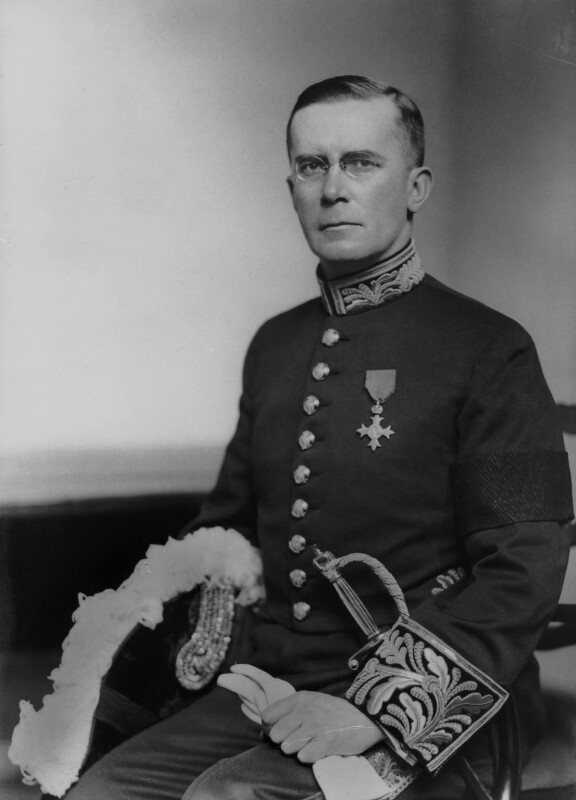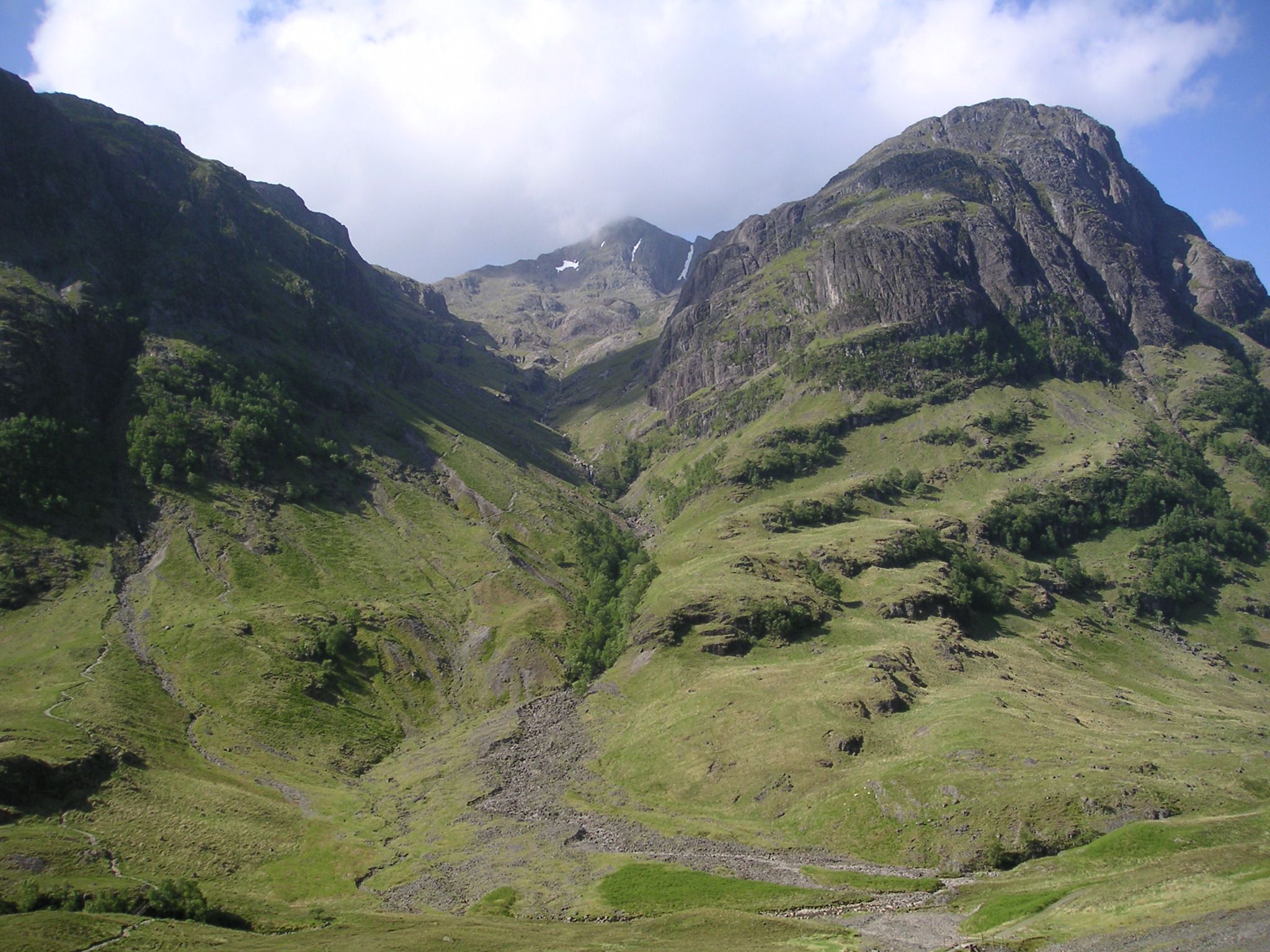|
A. E. Robertson
Rev. Archibald "Archie" Eneas Robertson (1870–1958), was a Church of Scotland minister. He is generally regarded as being the first mountaineer to climb all 282 Munros, the peaks of Scotland over in height, first listed by Sir Hugh Munro. Life He was born in Helensburgh on 3 July 1870, the son of a prosperous merchant then educated at Glasgow Academy. He then studied divinity at Glasgow University, graduating MA in 1892 and BD in 1896. From 1897 to 1906 he assisted in churches in Edinburgh and Musselburgh. In 1907 Robertson became minister of Braes of Rannoch (near the Bridge of Gaur, on the River Gaur) where he made an effort to learn Scottish Gaelic, to deliver his sermons in Gaelic and try to keep the language alive. In 1918 he moved to Edinburgh as chaplain of Astley Ainslie Hospital. In 1946 he was elected a fellow of the Royal Society of Edinburgh. His proposers were John (Ian) Bartholomew, Murray Macgregor, James Ernest Richey, Thomas Cooper, 1st Baron Cooper of C ... [...More Info...] [...Related Items...] OR: [Wikipedia] [Google] [Baidu] |
Munro
A Munro () is defined as a mountain in Scotland with a height over , and which is on the Scottish Mountaineering Club (SMC) official list of Munros; there is no explicit topographical prominence requirement. The best known Munro is Ben Nevis (Beinn Nibheis), the highest mountain in the British Isles at . Munros are named after Sir Hugh Munro, 4th Baronet (1856–1919), who produced the first list of such hills, known as ''Munro's Tables'', in 1891. Also included were what Munro considered lesser peaks, now known as Munro Tops, which are also over 3,000 feet but are lower than the nearby primary mountain. The publication of the original list is usually considered to be the epoch event of modern peak bagging. The list has been the subject of subsequent variation and as of 10 December 2020, the Scottish Mountaineering Club has listed 282 Munros and 226 Munro Tops. "Munro bagging" is the activity of climbing all the listed Munros. As of 31 December 2021, 7,098 people had reported ... [...More Info...] [...Related Items...] OR: [Wikipedia] [Google] [Baidu] |
Thomas Cooper, 1st Baron Cooper Of Culross
Thomas Mackay Cooper, 1st Baron Cooper of Culross (24 September 1892 – 15 July 1956) was a Scottish Unionist Party politician, a judge and a historian, who had been appointed Lord Advocate of Scotland. Background and education Cooper was the son of John Cooper, of Edinburgh, a civil engineer, and Margaret, daughter of John Mackay, of Dunnet, Caithness. In 1915 he applied to George Watson's College, Edinburgh, and the University of Edinburgh where he completed an MA in 1912 and a Law LLB. Political, legal and judicial career Cooper was admitted a member of the Faculty of Advocates in 1915 and created a King's Counsel in 1927. He was the Unionist Member of Parliament (MP) for Edinburgh West from a by-election in 1935 to 1941. In 1935 he was appointed Solicitor General for Scotland and later that year he was appointed as Lord Advocate. He also became a Privy Counsellor in 1935. In 1941 he became Lord Justice Clerk with the judicial title of Lord Cooper and in 1947 Lord Justic ... [...More Info...] [...Related Items...] OR: [Wikipedia] [Google] [Baidu] |
1958 Deaths
Events January * January 1 – The European Economic Community (EEC) comes into being. * January 3 – The West Indies Federation is formed. * January 4 ** Edmund Hillary's Commonwealth Trans-Antarctic Expedition completes the third overland journey to the South Pole, the first to use powered vehicles. ** Sputnik 1 (launched on October 4, 1957) falls to Earth from its orbit, and burns up. * January 13 – Battle of Edchera: The Moroccan Army of Liberation ambushes a Spanish patrol. * January 27 – A Soviet-American executive agreement on cultural, educational and scientific exchanges, also known as the " Lacy–Zarubin Agreement", is signed in Washington, D.C. * January 31 – The first successful American satellite, Explorer 1, is launched into orbit. February * February 1 – Egypt and Syria unite, to form the United Arab Republic. * February 6 – Seven Manchester United footballers are among the 21 people killed in the Munich air disaster in West G ... [...More Info...] [...Related Items...] OR: [Wikipedia] [Google] [Baidu] |
1870 Births
Year 187 ( CLXXXVII) was a common year starting on Sunday (link will display the full calendar) of the Julian calendar. At the time, it was known as the Year of the Consulship of Quintius and Aelianus (or, less frequently, year 940 '' Ab urbe condita''). The denomination 187 for this year has been used since the early medieval period, when the Anno Domini calendar era became the prevalent method in Europe for naming years. Events By place Roman Empire * Septimius Severus marries Julia Domna (age 17), a Syrian princess, at Lugdunum (modern-day Lyon). She is the youngest daughter of high-priest Julius Bassianus – a descendant of the Royal House of Emesa. Her elder sister is Julia Maesa. * Clodius Albinus defeats the Chatti, a highly organized German tribe that controlled the area that includes the Black Forest. By topic Religion * Olympianus succeeds Pertinax as bishop of Byzantium (until 198). Births * Cao Pi, Chinese emperor of the Cao Wei state (d. 226) * ... [...More Info...] [...Related Items...] OR: [Wikipedia] [Google] [Baidu] |
Scottish Mountain Climbers
Scottish usually refers to something of, from, or related to Scotland, including: *Scottish Gaelic, a Celtic Goidelic language of the Indo-European language family native to Scotland *Scottish English *Scottish national identity, the Scottish identity and common culture *Scottish people, a nation and ethnic group native to Scotland *Scots language, a West Germanic language spoken in lowland Scotland *Symphony No. 3 (Mendelssohn), a symphony by Felix Mendelssohn known as ''the Scottish'' See also *Scotch (other) *Scotland (other) *Scots (other) *Scottian (other) *Schottische The schottische is a partnered country dance that apparently originated in Bohemia. It was popular in Victorian era ballrooms as a part of the Bohemian folk-dance craze and left its traces in folk music of countries such as Argentina ("chotis"Span ... * {{disambiguation Language and nationality disambiguation pages ca:Escocès ... [...More Info...] [...Related Items...] OR: [Wikipedia] [Google] [Baidu] |
Glen Coe
Glen Coe ( gd, Gleann Comhann ) is a glen of volcanic origins, in the Highlands of Scotland. It lies in the north of the county of Argyll, close to the border with the historic province of Lochaber, within the modern council area of Highland. Glen Coe is regarded as the home of Scottish mountaineering and is popular with hillwalkers and climbers. A 2010 review by Scottish Natural Heritage into the special qualities of Scotland's National scenic areas listed the "soaring, dramatic splendour of Glen Coe", and "the suddenness of the transition between high mountain pass and the lightly wooded strath" as being of note. The review also described the journey through the glen on the main A82 road as "one of the classic Highland journeys". The main settlement is the village of Glencoe located at the foot of the glen.Ordnance Survey Landranger 1:50000, Sheet 41 On the 13 February 1692, in the aftermath of the Jacobite uprising of 1689, an incident known as the Massacre of Glenco ... [...More Info...] [...Related Items...] OR: [Wikipedia] [Google] [Baidu] |
Aonach Eagach
The Aonach Eagach () is a large mountain ridge in the Scottish Highlands, marking the northern edge of Glen Coe. It stretches east–west for several miles and includes two Munro summits: Sgùrr nam Fiannaidh at 967 m (3,175 ft) high, and Meall Dearg at 952 m (3,124 ft) high. The ridge is very rocky and the route along it requires scrambling ability. The slopes to each side are extremely dangerous, with steep grass-and-scree slopes hiding even steeper slopes which end in cliffs on both north and south sides of the ridge. Climbing The Aonach Eagach is usually regarded as the most difficult horizontal 'scrambling' ridge in mainland Scotland, though it vies with Liathach (and, in winter, An Teallach) for this title. In his book "Scrambles in Lochaber", local climber Noel Williams warns that there are no other ridges in the area that are "so narrow and so difficult to escape from once committed. Some sections are extremely exposed. This makes it a difficult o ... [...More Info...] [...Related Items...] OR: [Wikipedia] [Google] [Baidu] |
Ben Wyvis
Ben Wyvis ( gd, Beinn Uais) is a mountain in Easter Ross, in the northern Highlands of Scotland. It lies north-west of Dingwall, in the council area of Highland, and the county of Ross and Cromarty. Ben Wyvis is a large winding and undulating ridge running roughly north–south for about 5 km, the highest point of which is Glas Leathad Mòr at . Geologically, the ridge is composed of Moine pelitic gneiss. The mountain is prominent in views of the area, presenting a whale-back shape above the farmland of Strathconon. Ben Wyvis is an important habitat for several species of plants and birds, and is designated as a National Nature Reserve (NNR), a Special Protection Area (SPA), a Special Area of Conservation (SAC), and a Site of Special Scientific Interest (SSSI). Of particular importance is the woolly hair-moss that covers the summit plateau. This springy moss provides ideal nesting territory for dotterel that breed here each summer:The Story of Ben Wyvis National N ... [...More Info...] [...Related Items...] OR: [Wikipedia] [Google] [Baidu] |
Scottish Rights Of Way Society
Scottish usually refers to something of, from, or related to Scotland, including: *Scottish Gaelic, a Celtic Goidelic language of the Indo-European language family native to Scotland *Scottish English *Scottish national identity, the Scottish identity and common culture *Scottish people, a nation and ethnic group native to Scotland *Scots language, a West Germanic language spoken in lowland Scotland *Symphony No. 3 (Mendelssohn), a symphony by Felix Mendelssohn known as ''the Scottish'' See also *Scotch (other) *Scotland (other) *Scots (other) *Scottian (other) *Schottische The schottische is a partnered country dance that apparently originated in Bohemia. It was popular in Victorian era ballrooms as a part of the Bohemian folk-dance craze and left its traces in folk music of countries such as Argentina ("chotis"Span ... * {{disambiguation Language and nationality disambiguation pages ca:Escocès ... [...More Info...] [...Related Items...] OR: [Wikipedia] [Google] [Baidu] |
James Ritchie (naturalist)
James Ritchie CBE PRSE (27 May 1882 – 19 October 1958) was a Scottish naturalist and archaeologist, who was Professor of Natural History at the University of Edinburgh 1936–52 and President of the Royal Society of Edinburgh 1952–1958. Life He was born on 27 May 1882 in Port Elphinstone in Aberdeenshire the son of James Ritchie, the local schoolmaster. He was educated at Gordon's College in Aberdeen then studied Science at Aberdeen University. In 1916 he was elected a Fellow of the Royal Society of Edinburgh. His proposers were Sir Thomas Carlaw Martin, James Cossar Ewart, James Hartley Ashworth and Cargill Gilston Knott. He won the Society's Keith Prize for the period 1941–43. He served as Secretary 1928–31; Vice President 1931–34, 1940–43 and 1951–54; and President 1954–58. From 1921 to 1930 he was Keeper of Natural History at the Royal Scottish Museum on Chambers Street in Edinburgh. In 1930 he left Edinburgh to take up a post of Regius Professor of Na ... [...More Info...] [...Related Items...] OR: [Wikipedia] [Google] [Baidu] |


.jpg)



